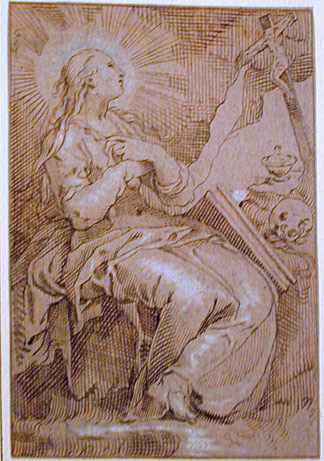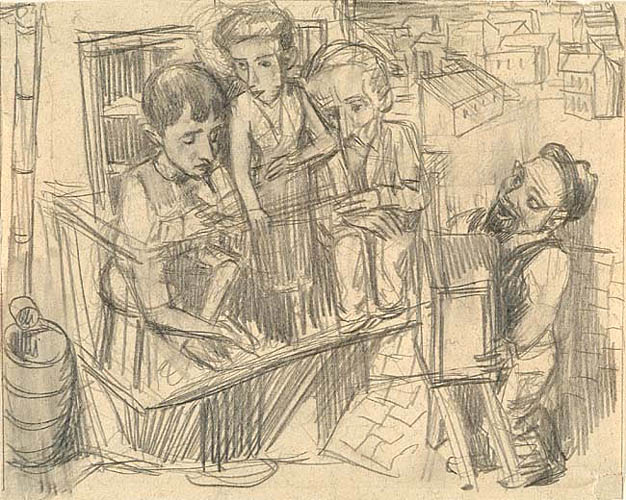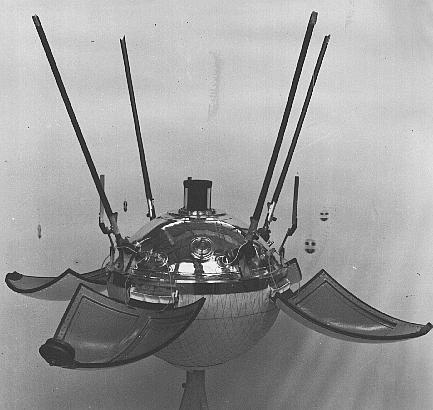
February 3 An egalitarian and idealist, Greeley espoused a variety of causes. He popularized the communitarian ideas of Fourier, and invested in a Fourier utopian community at Red Bank, New Jersey. He advocated the homestead principle of distributing free government land to settlers, attacked the exploitation of wage labor, denounced monopolies, and opposed capital punishment. Assisted by a talented and versatile staff, a number of whom were identified with the Transcendentalist movement, Greeley made the Tribune an enormous success. It merged with the Log Cabin and New Yorker, expanded its staff and circulation throughout the 1840s and 1850s, and by the eve of the Civil War had a total circulation of more than a quarter of a million. This number, however, vastly understated the paper's influence, as each copy often had more than one reader. The weekly Tribune was the preeminent journal in the rural North. Greeley opposed slavery as morally deficient and economically regressive, and during the 1850s, he supported the movement to prevent its extension. He opposed the Mexican War, approved the Wilmot Proviso, which called for the restriction of slavery in territories gained as a result of that war, and denounced the Kansas-Nebraska Act. Greeley's free-soil sentiments brought him quickly into the Republican party's camp, and he attended the national organization meeting of the party at Pittsburgh in February 1856. He supported the Republican candidate in the presidential contest of 1856, and four years later..."

0474 Death: Leo I, Byzantine Emperor 457-74.
1014 Death: King Sweyn of Denmark I; succeeded by his son, Canute II the Great.
1194 Henry VI of Germany releases King Richard I the Lion-Heart of England, captured during the Third Crusade.
1399 Death: English Prince John of Gaunt, Duke of Lancaster, son of King Edward III and father of King Henry IV.
1451 Death: Murad II, sultan of Turkey, 1421-51.
1468 Death: Johann Gensfleisch Gutenberg, printer.

1488 Portuguese explorer Bartholomew Diaz becomes the first European to land on African soil, putting ashore at Mossel Bay, Cape of Good Hope.
1576 Henry of Navarre, the future Henry IV, escapes from Paris.
1679 Death: John Havicksz Stone, painter; St Nicolas Feast.

1690 The first paper money in America is issued, in the colony of Massachusetts.
1743 Philadelphia establishes a 'pesthouse' to quarantine immigrants.
1781 The Dutch West Indies island of St Eustatia is taken by the British.
1783 US Revolutionary War: Spain recognizes US independence.
1807 Montevideo is taken by British forces led by Sir Samuel Auchmuty.

1809 The Illinois Territory, including present-day Wisconsin, is established.

1811 Birth: Horace Greeley, American journalist, editor, presidential candidate. "...the son of a New England farmer and day laborer, Breeley was born in Amherst, New Hampshire in February 1811. The economic struggles of his family meant that he received only irregular schooling, which ended when he was fourteen. He then apprenticed to a newspaper editor in Vermont, and found employment as a printer in New York and Pennsylvania. Seeking to improve his prospects, he gathered his possessions and a small amount of money, and in 1831, set out for New York City. The twenty year old Greeley found various jobs, which provided some capital, and in 1834, he founded a weekly literary and news journal, the New Yorker....In April 1841, Greeley set himself on the path to national prominence and power when he launched the New York Tribune. The Tribune was multifaceted, devoting space to politics, social reform, literary and intellectual endeavors, and news. It was very much Greeley's personal vehicle.
%20copy.jpg)
1836 The Whig Party holds its first national convention, in Albany, New York.

1855 The Wisconsin Supreme Court declares the US Fugitive Slave Law unconstitutional.
1862 Thomas A. Edison prints the Weekly Herald and distributes it to train passengers traveling between Port Huron and Detroit, Michigan; the first time a newspaper is printed on a train.
1862 Death: Jean-Baptiste Biot, French physicist, astronomer, at 87.
1865 US Civil War: At the Hampton Roads Peace Conference, Lincoln and Stephens reach an impasse.
1867 Prince Mutsuhito becomes Emperor Meiji of Japan at the age of 14 and reigns until 1912.
1870 Reconstruction: The 15th Amendment, which grants that the right to vote shall not be denied on account of race, color or previous condition of servitude (former slaves), is ratified.
1874 Birth: Gertrude Stein, in Pennsylvania, poet, novelist, author; Autobiography of Alice B. Toklas.

1883 Birth: Camille Bombois, French circus wrestler, painter.
1889 Death: Belle Starr, US female gangster, murdered at 40.

1894 Birth: Norman Rockwell, US artist, illustrator.
1894 The first US steel sailing vessel, Dirigo, is launched at Bath, Maine.

1898 Birth: Alvar Aalto, in Finland, architect.
1898 Birth: Paul Urysohn, Russian mathematician.
1904 Birth: Charlie 'Pretty Boy' Floyd, FBI Most Wanted criminal.
1907 Birth: James A. Mitchner, in New York City, writer; South Pacific, Hawaii, Space, Poland.
1908 The US Supreme Court rules that a union boycott violated the Sherman Antitrust Act.
1909 Birth: Simone Weil, in Paris, mystic, social philosopher, Resistance fighter.

1913 Deconstruction: The 16th Amendment to the US Constitution is ratified by Wyoming, giving the US government the power to impose and collect taxes on income.

1914 Birth: Cornelis 'Kees' Andrea, painter, graphic artist, carpet designer.
1916 Canada's original Parliament buildings, in Ottawa, are destroyed by fire.
1916 WW1: Tristan Tzar publishes the Dada-manifest in Zurich, Switzerland.
1917 WW1: President Woodrow Wilson breaks off all diplomatic relations with Germany, less than a month after his inauguration for a second term, citing Germany's renewed submarine warfare as reason enough to intervene. That same day the American steamship Housatonic is sunk without warning.
1919 A Socialist conference is held in Berne, Switzerland.
1919 Kiev is captured by the Bolsheviks.
1919 The first meeting of the League of Nations takes place in Paris.
1920 Birth: Henry Heimlich, doctor, inventor; Heimlich maneuver.
1924 Death: Woodrow Wilson, the 28th president of the United States, in Washington, DC, at 67. "...On January 31 Germany announced that unrestricted submarine warfare was already started; on March 27, after four American ships had been sunk, Wilson decided to ask for a declaration of war; on April 2 he made the formal request to Congress; and on April 6 the Congress granted it. Wilson never doubted the outcome. He mobilized a nation - its manpower, its industry, its commerce, its agriculture. He was himself the chief mover in the propaganda war. His speech to Congress on January 8, 1918, on the Fourteen Points was a decisive stroke in winning that war, for people everywhere saw in his peace aims the vision of a world in which freedom, justice, and peace could flourish. Although at the apogee of his fame when the 1919 Peace Conference assembled in Versailles, Wilson failed to carry his total conception of an ideal peace (in fact many, especially the Germans, felt betrayed by Wilson's ideological vision), but he did secure the adoption of the Covenant of the League of Nations. His major failure, however, was suffered at home when the Senate declined to approve American acceptance of the League of Nations. This stunning defeat resulted from his losing control of Congress after he had made the congressional election of 1918 virtually a vote of confidence, from his failure to appoint to the American peace delegation those who could speak for the Republican Party or for the Senate, from his unwillingness to compromise when some minor compromises might well have carried the day, from his physical incapacity in the days just prior to the vote. The cause of this physical incapacity was the strain of the massive effort he made to obtain the support of the American people for the ratification of the Covenant of the League. After a speech in Pueblo, Colorado, on September 25, 1919, he collapsed and a week later suffered a cerebral hemorrhage from the effects of which he never fully recovered. An invalid, he completed the remaining seventeen months of his term of office and lived in retirement for the last three years of his life..."
1924 Alexei Ryko is elected President of People's commission, succeeding Lenin.
1927 US President Calvin Coolidge signs a bill into law that creates the Federal Radio Commission 'to bring order out of this terrible chaos'.
1930 US President Herbert Hoover appoints Charles Evans Hughes as Chief Justice of the US Supreme Court after William Howard Taft resigns as chief justice for health reasons.

1931 The Arkansas legislature passes a motion to pray for the soul of H.L. Mencken after he called the state an 'apex of moronia'.
1933 The first interstate legislative conference in the US opens in Washington DC.
1933 Germany's new Chancellor, Adolf Hitler, secretly addresses the top leaders of the German armed forces, setting out his aims for the new Germany he envisions.
1934 Holocaust: Liberation, an anti-Semitic publication, publishes the text of a speech supposedly given by Benjamin Franklin during the US Constitutional Convention (1787-1788) in which he is alleged to have remarked that if the immigration of Jews to the United States is not restricted, the Jews will ruin the country. Historians later conclude that this document, if it ever did exist, was a forgery. (Edelheit)
1939 Holocaust: A bomb thrown into a Budapest synagogue kills one Jewish worshipper and injures many others. (Atlas)
1943 Stalingrad: Hitler announces the fall of Stalingrad to the German people. He declares four days of mourning, with the closure of all places of entertainment. The Germans lost 110,000 killed during the battle and a further 91,000 were made prisoner. No details of the total Soviet casualties are available, but they were high. Of the Germans captured at Stalingrad, some were put to work rebuilding the city, while the others were marched east and ended up in camps from the Arctic Circle down to the borders with Afghanistan. Many died as a result of a typhus epidemic in spring 1943 and others of exhaustion and lack of food. Eventually only some 5,000 returned to Germany long after the war was over. Some high-ranking prisoners, including Paulus himself, disillusioned by what they viewed as Hitler's betrayal of them, were eventually persuaded by the Russians to make propaganda broadcasts to encourage German troops to surrender. Stalingrad was undoubtedly a major turning-point, not just on the Eastern Front but of the whole war. It is a dramatic reverse for German arms, but need never have happened if Hitler had been less obstinate. For the German armies on the Eastern Front, however, there is little time to grieve, for they are now having to deal with renewed Soviet offensives in the Caucacus and Ukraine. (Messenger)
1944 Holocaust: Another trainload of Jews leaves Paris for Auschwitz. It is the 67th such deportation in almost two years. Of 1,214 deported only 26 survive the war. (Atlas)

1945 WW2: US aircraft drop 3,000 tons of explosives on Berlin's city center (the Zentrum).

1945 Death: Roland Freisler, German Nazi judge. "He became State Secretary at the Reich Ministry of Justice and President of the Volksgerichtshof (People's Court). He was born in Celle on October 30, 1893. He saw active service during WW I, he was an officer cadet in 1914, by 1915 he was a lieutenant and decorated before becoming a prisoner of war in Russia in October 1915. He returned to Germany in 1920 a convinced Communist to study law at Jena University, becoming a Doctor of law in 1922. From 1924 he worked as a lawyer in Kassel and also as a city councilor for the Volkisch-Social bloc. He joined the Nazi Party in July 1925. In 1932 he was elected as a National Socialist delegate to the Prussian Landtag, and the next year to the Reichstag. Also in 1933 he was appointed ministerial secretary at the Prussian Ministry of Justice, becoming under-secretary in June 1933. In June 1934, Freisler was named under-secretary in the new Reich and Prussian Ministry of Justice. From 1939, he was instrumental in the creation of special courts for "courts-martial on the domestic front." He was present at the Wannsee Conference as representative for Franz Schlegelberger, the minister in the Reich Ministry of Justice. As President of the Volksgerichtshof from August 1942 (replacing Otto Thierack), the "Hanging Judge" presided over around 1,200 trials, nearly all ended with the death penalty. He is killed during the above mentioned air raid on Berlin on this day."
1947 Percival Prattis, of Our World in New York City, becomes the first black news correspondent admitted to the House and Senate press gallery in Washington, DC.
1947 Death: Marc A. 'Pete' Mitscher, US Lieutenant-Admiral WW2-Task Force 58.
1950 Nuclear physicist Klaus Fuchs is arrested on spy charges.
1953 Marine archeologist Jacques Cousteau's first and most-lasting work, The Silent World, is published. He attracts worldwide attention when he salvages a 1,000-pound Roman freighter near Marseilles. While in the French navy, he and engineer Emil Gargon invent the aqualung. However, Cousteau is best known for his documentaries and book.
1954 Queen Elizabeth II arrives in Australia for the first visit by a reigning monarch.
1958 The Benelux Economic Union Treaty between Belgium, Luxembourg and Netherlands is signed.
1958 Death: Henry Kuttner, science-fiction author; Dark World, As You Were.
1959 The music died.
1960 British Conservative Prime Minister Harold Macmillan foreshadowing the decolonization of Africa, tells the South African parliament: 'The wind of change is blowing through the continent.'
1962 US President Kennedy bans all trade with Communist Cuba except for food and drugs.
1964 Black and Puerto Rican students boycot New York City public schools.
1964 The American spacecraft Ranger 6 crashes on the moon.
1965 Orbiting Solar Observatory 2 is launched into Earth orbit.
1966 The first operational weather satellite, ESSA-1, is launched by the US.

1966 Lunik 9: The first soft landing on the moon is made by the Soviet unmanned spacecraft Luna 9, in the Oceanus Procellarum (Ocean of Storms).
1969 The Palestine National Congress appoints Yasser Arafat head of the Palestine Liberation Organization (PLO).
1973 President Nixon signs into law the Endangered Species Act.
1978 The European Economic Community and China initial their first trade agreement.
1986 President Reagan names a commission to probe the Challenger space shuttle explosion.
1992 Argentine President Carlos Menem signs a decree opening all files on Nazis who fled to South America after WW2.
1992 In the trial of Manuel Noriega, the defense opens calling Noriega 'our ally in war on drugs'.
1992 The angry rhetoric escalates between the United States and Japan when Japanese Prime Minister Miyazawa accuses American workers of lacking a 'work ethic.'
1994 President Bill Clinton announces the lifting of the US trade embargo against Vietnam, marking a dramatic shift in relations chilled for decades by war and postwar hostility.
1994 President Boris Yeltsin signs a treaty with the East-European state of Georgia reasserting Russia's military influence in the former Soviet republic.
1994 The International Court of Justice, in a ruling on a 20-year border dispute, rejects Libya's claim to a huge swathe of neighboring Chad's territory.
1994 The US space shuttle Discovery lifts off, carrying five American astronauts and the first Russian cosmonaut aboard a US spacecraft.
1996 A US army sergeant becomes the first American killed on the Bosnia peacekeeping mission.
1998 Texas executes Karla Faye Tucker, the first female inmate to be put to death by the state in 135 years.
1998 A US Marines jetfighter, flying low over mountains in Italy, severs a ski lift cable, sending 20 people in a cable car plunging to their deaths.

1999 Former Vice President Dan Quayle announces he is forming an exploratory committee to consider running for the Republican presidential nomination.
2001

2001

2002

2002

2003

2003

2004

2004

2005

2005

2005

2005

Visit:




 Visit:
Visit:

Click Here to email the History: One Day At a Time webmaster.